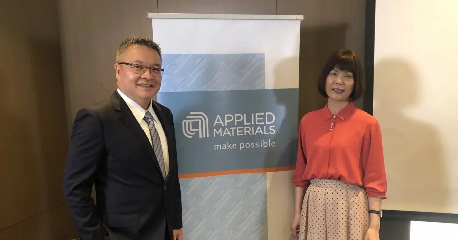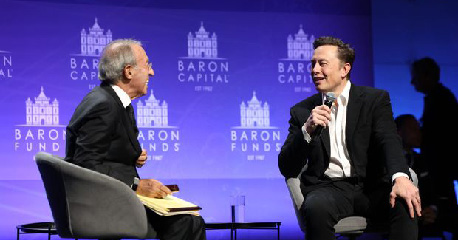
"The more you force China, the more it will make them unite and fight." A semiconductor company commented on China under the ban in an interview with "Digital Age". It means that even if the chokehold attack from the White House comes fast and fierce, it may actually become a catalyst for China to accelerate the development of semiconductors.
Strictly control risks, equipment manufacturers conduct "preventive withdrawal"
Shortly after the U.S. Department of Commerce announced the ban, the Wall Street Journal reported on October 13 that semiconductor equipment manufacturers such as Applied Materials, Lam Research, and KLA have successively Started to evacuate the U.S. employees stationed in the Yangtze River Storage plant in China, and suspended operations in China.
Those who have worked in foreign equipment manufacturers bluntly said that Applied Materials has the most extensive and deepest layout in China, and it is speculated that it is likely to be the equipment manufacturer that suffers the most damage under the storm. The company also cut its third-quarter revenue forecast by $400 million on the 12th of last month, citing the ban. Before that, China accounted for about 30 percent of the company's second-quarter sales.
Another analyst of the research institute said that the American equipment manufacturers stationed at SMIC at the time were also embarking on a "preventive withdrawal". The analyst said frankly: "Not only 14 nanometers, but also 28 nanometers, almost all of them."
Analysts explained that although the content of the ban only stipulates that American people are not allowed to be involved in high-end processes, due to the complex wafer manufacturing process, it is still possible to produce 14-nanometer products even in a 28-nanometer factory area. 1,000 processes, of which 200 may overlap." Under such circumstances, American equipment manufacturers had to carry out large-scale withdrawals to minimize the possibility of stepping on the red line.
In 2025, the dream of domestic manufacturing is broken? Analyst: Films may gradually move out of China
The impact of the ban on China does not stop there. Li Dongcheng, the founder of Dolphin Think Tank, analyzed that most of the equipment such as etching, cleaning or diffusion contains American technology. In the future, the speed of China's expansion of fabs in China will be delayed. Among them, the advanced process that the United States wants to suppress is the first to bear the brunt.
Analysts said that in the next year, SMIC's expansion rate will definitely slow down, and there is a very high probability that there will be a shortage of production capacity. In addition, the exit of the American maintenance personnel in the factory area will also affect the health of the machine and affect the business of the fab. risk management.”
In terms of IC design, despite decades of incentives and development by the Chinese government, its strength cannot be underestimated, and it has also developed to a certain extent for high-end AI chips. Now that the advanced manufacturing process is under pressure from the White House, no matter how strong the design capability is, it will be subject to certain restrictions. Li Dongcheng said: "Xiaomi and OPPO can still purchase 5G chips, but there is no way for AI chips. In addition, the 2025 domestic manufacturing plan will also be delayed."
The White House is approaching, how will China respond? Three coping strategies can help China get out of trouble?
However, the development of advanced technology in a country can almost be equated with the progress of military force. Judging from China's tough political stance in recent years, will the Beijing authorities really be relegated to the back seat because of all kinds of obstructions from the United States?
Li Chun, deputy chief executive of the WTO and RTA Center of the China Economic Research Institute, believes: "China will not sit still and will find a way to get rid of it." He took North Korea as an example. Although North Korea was sanctioned by international sanctions in the past, it still developed a fairly accurate nuclear bomb. . In other words, North Korea can do it, and so can China, with its 1.4 billion people. Specifically, "Digital Age" lists several possible countermeasures for China.
First of all, in terms of talents, a measurement-related industry pointed out that China is likely to accelerate the absorption of talents from Zhou countries, including Japan, India, South Korea and Taiwan.
The businessman analyzed that because Taiwan has semiconductor equipment-related technologies and maintenance talents, as well as warriors who can develop advanced processes, there is a high chance that talents will be poached to China with high salaries to accelerate development. Xu Ruiting, managing director and senior partner of Boston Consulting Group (BCG), believes that the most critical talents are middle and senior executives who master the key technologies of advanced processes and understand how to implement them.
However, Xu Ruiting also said that it is still difficult to confirm the impact of the withdrawal of talents: "There are some Americans who hold green cards or work in China, and may in turn want to stay in China." He further explained that this group of people even When you go back to the United States, most of your experience working in China will be known. Even if you don’t write your resume, it is difficult to cover up this fact, which may cause difficulties in finding a job. draw conclusions."
Secondly, in terms of technology, China may also help the development of high-end AI chips and computing by developing quantum computers and advanced packaging technology. Yang Ruilin, research director of the Industrial Technology International Strategy Development Institute of the Industrial Technology Research Institute, said that China has been accumulating academic energy related to quantum computers very early, and there are also many international students who have studied quantum knowledge in the United States.
Yang Ruilin believes that although quantum is still in the early stage, the industry is generally optimistic about the future development of classical computing. "Quantum and classical computing are complementary, and there is no replacement relationship at this stage." But he also believes that once China is forced to When the dead corner needs to jump over the wall, "it's hard for you to predict what China will make in the future."
At present, in Europe, Canada and other regions, Alibaba has the footprint of developing quantum. Yang Ruilin pointed out that the hardware specifications of quantum computing do not need to use advanced manufacturing processes, such as 40 and 28 nanometers and other fairly mature manufacturing processes. "SMIC can help Alibaba do it." ) only need a few million, and the speed can be as fast as the current hundreds of millions of SoCs.
Finally, in the part of business strategy, the measurement industry clearly pointed out: "China may speed up the acquisition of European semiconductor factories." Despite the objections of the national security agency, Silex, a wholly-owned subsidiary of China's Beijing-based Sai Micro Electronics, was approved to acquire the German auto semiconductor maker Elmos chip factory.
Although the German government then quickly clarified, the merger has not yet been approved. But judging from this news, China's acquisition of fabs with mature processes in Europe aims to accelerate the expansion of the production capacity of mature processes, and to efficiently obtain experienced personnel and verified machine workshops. Even in the case that the scope of the ban may be further expanded, this move has a sense of risk aversion.


